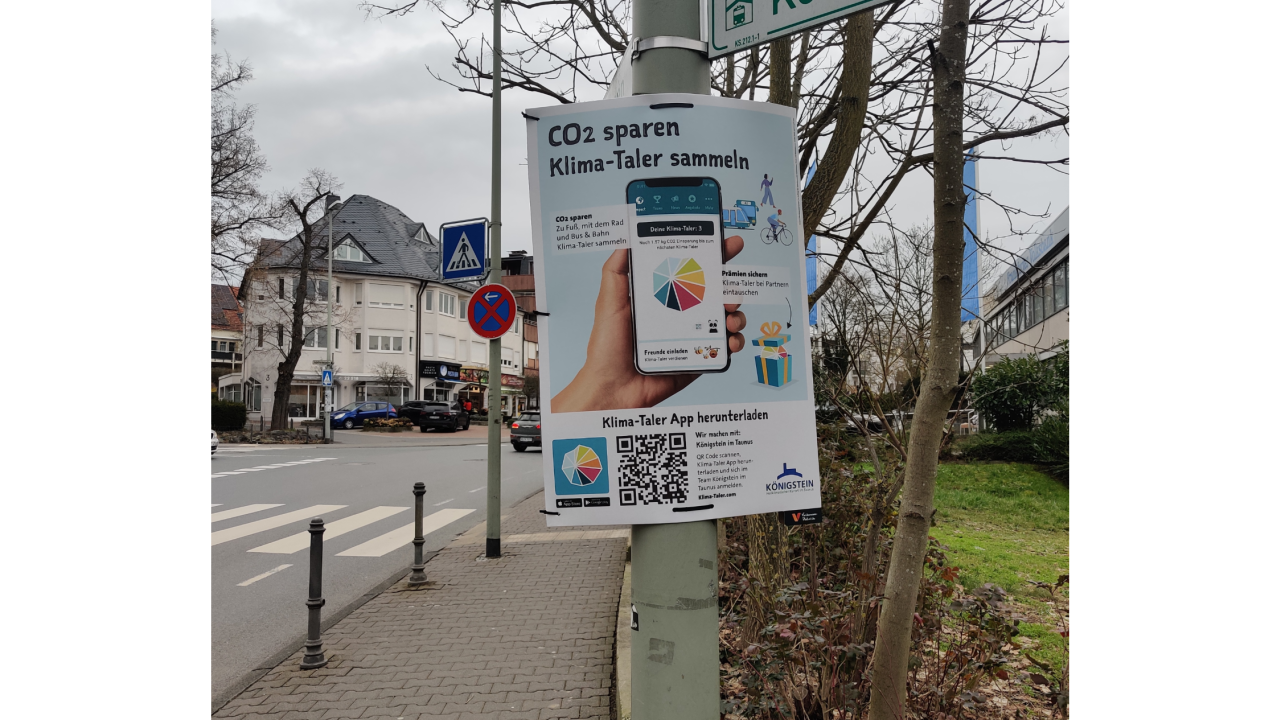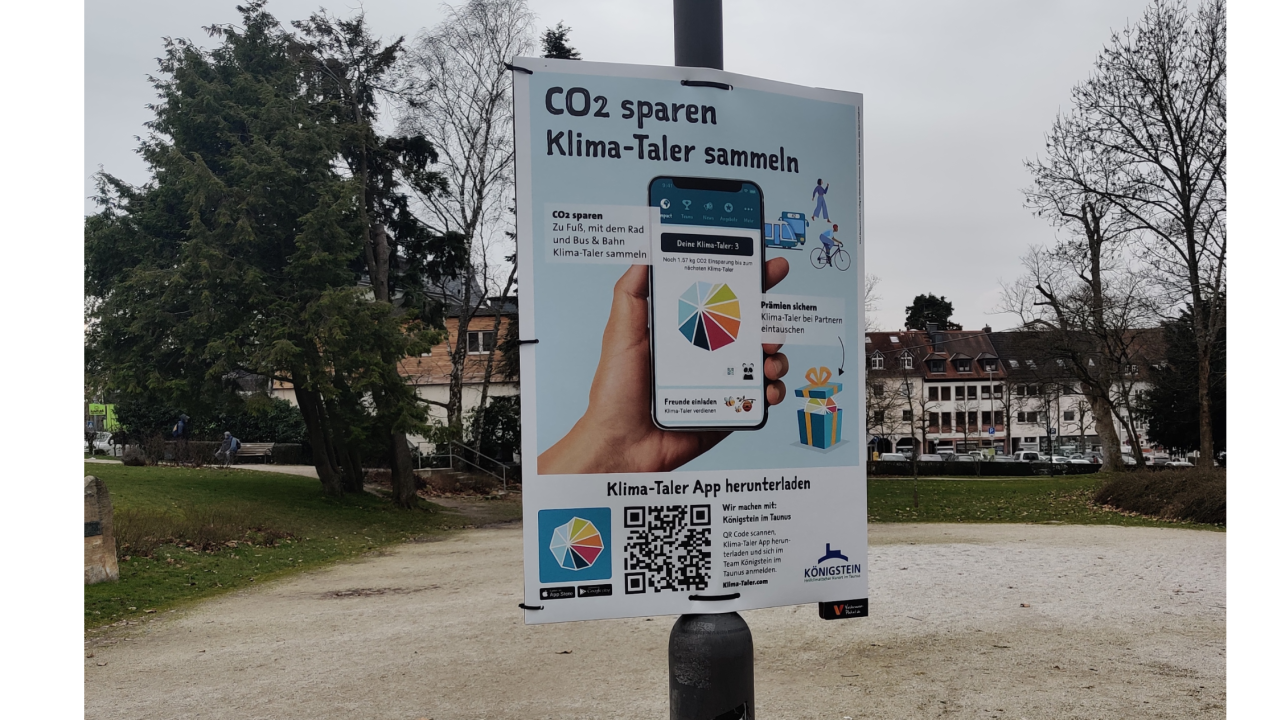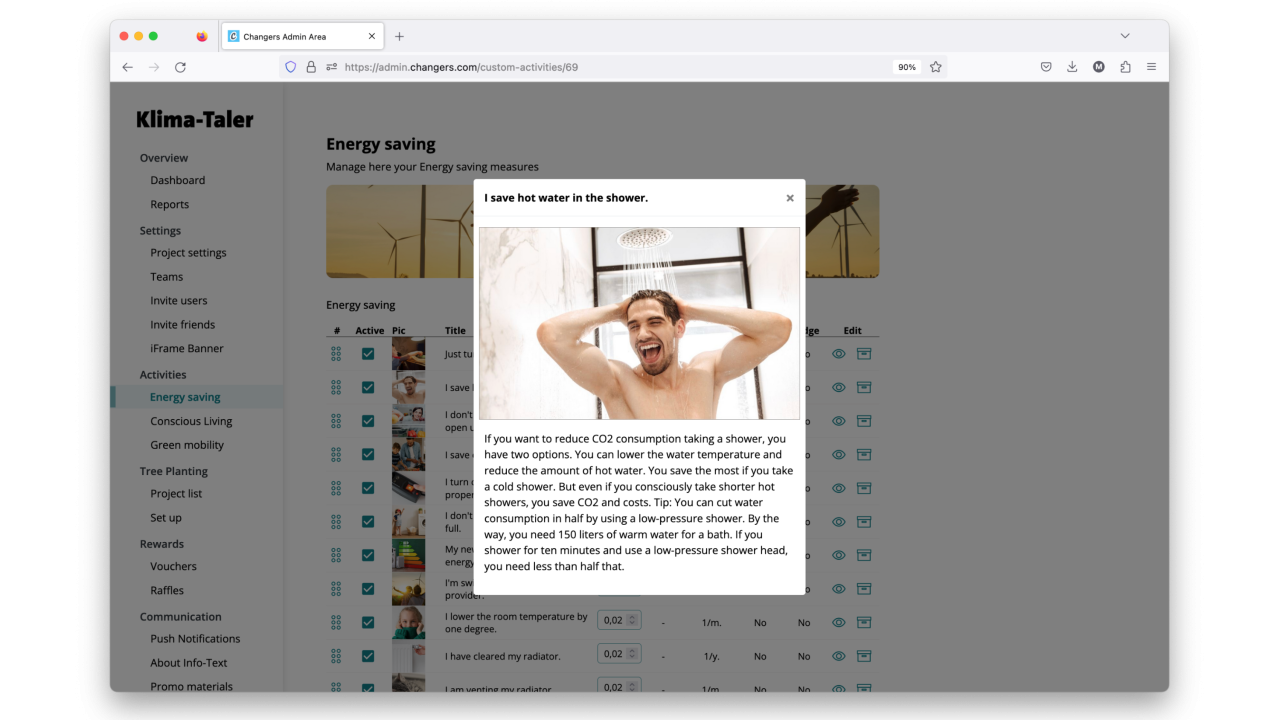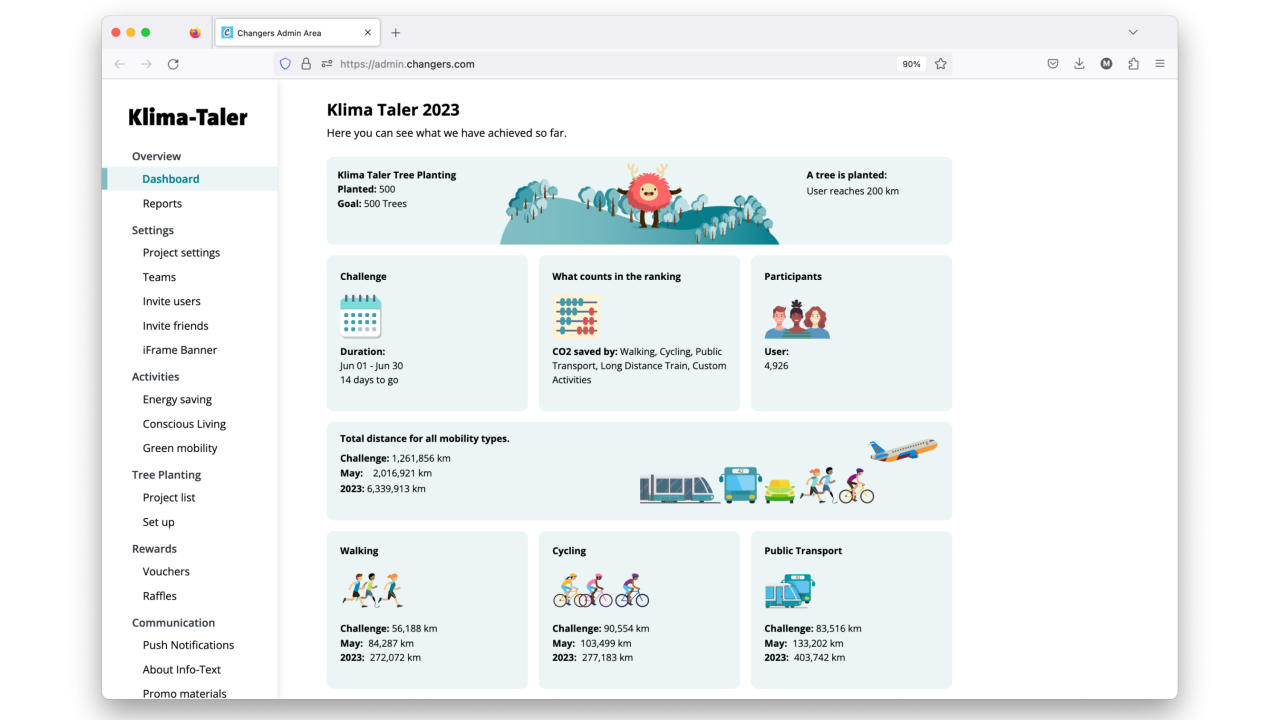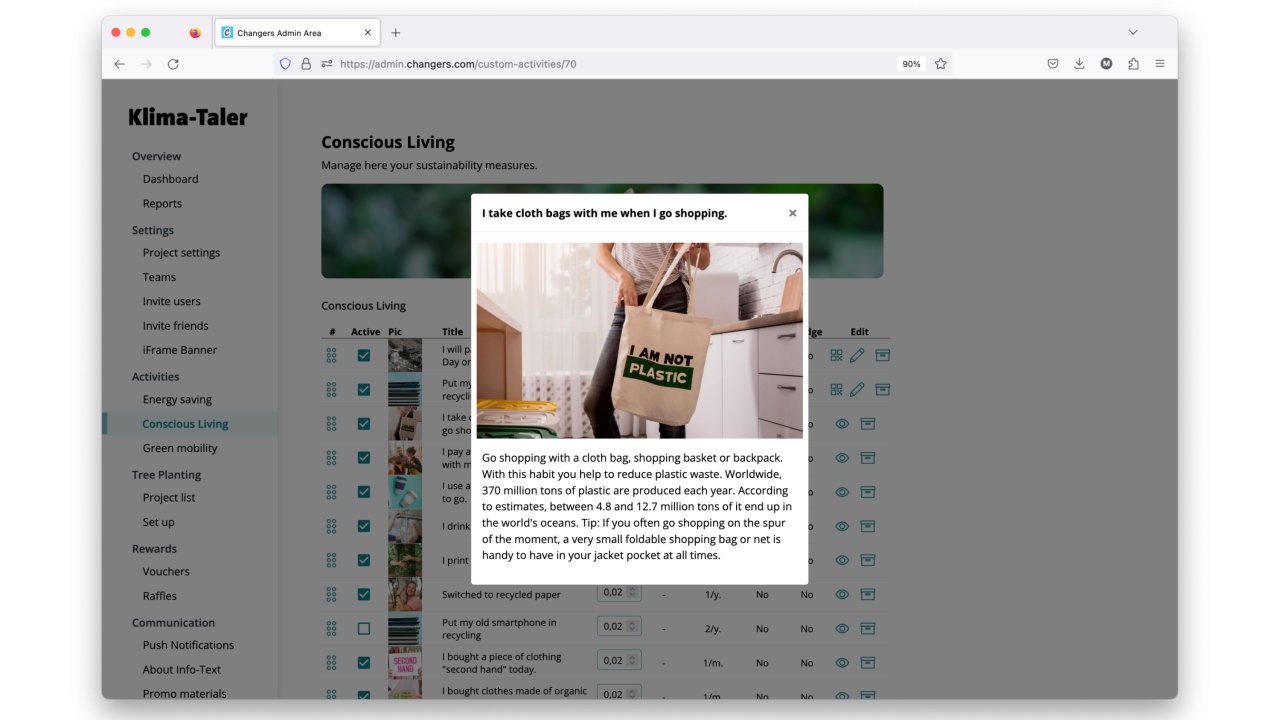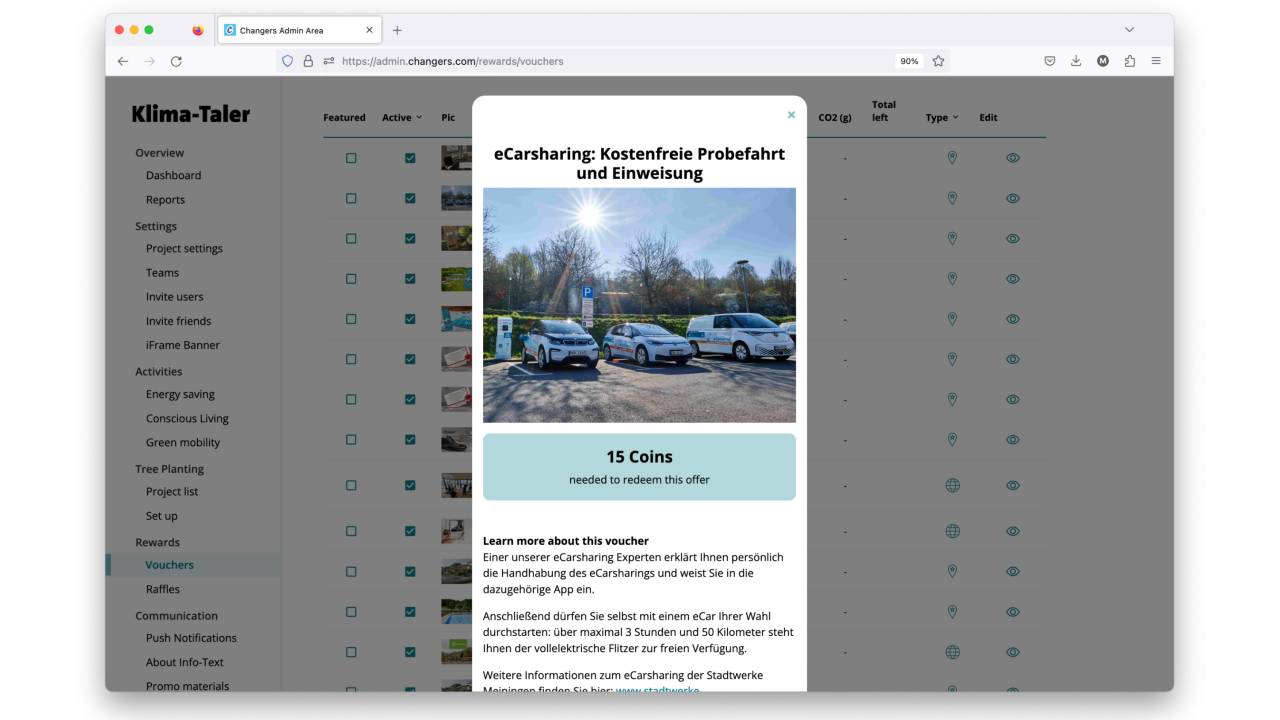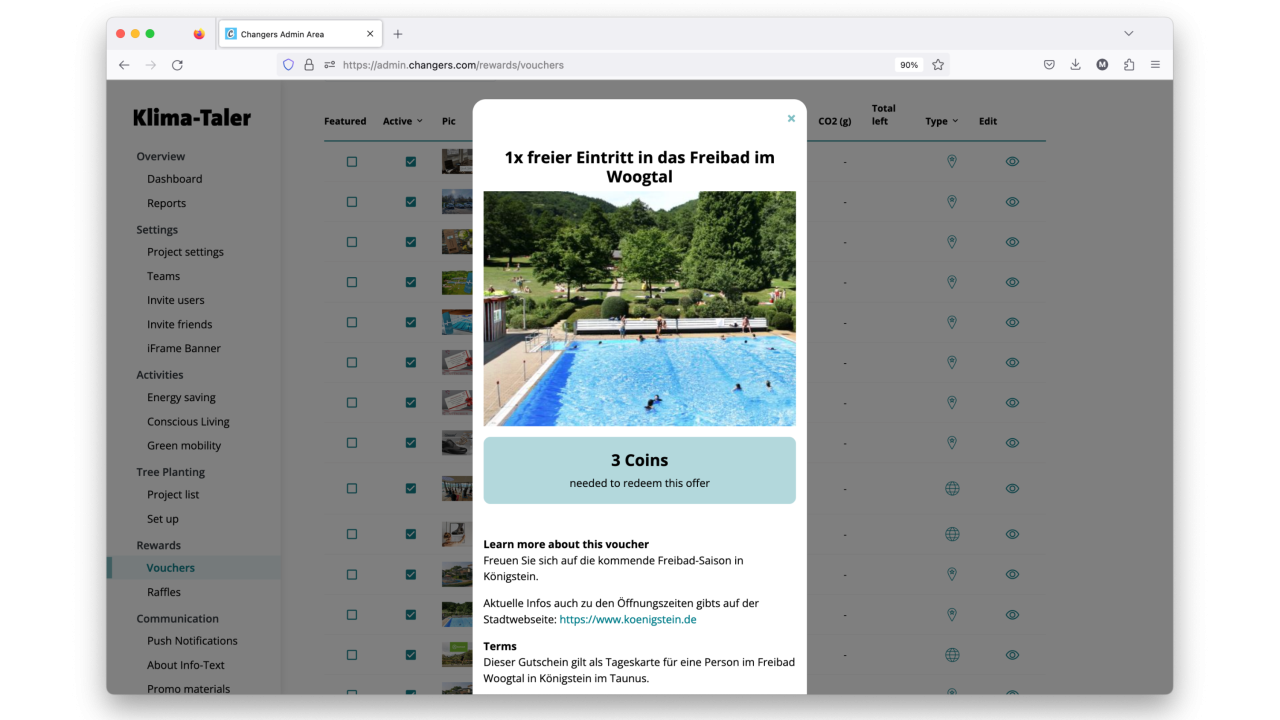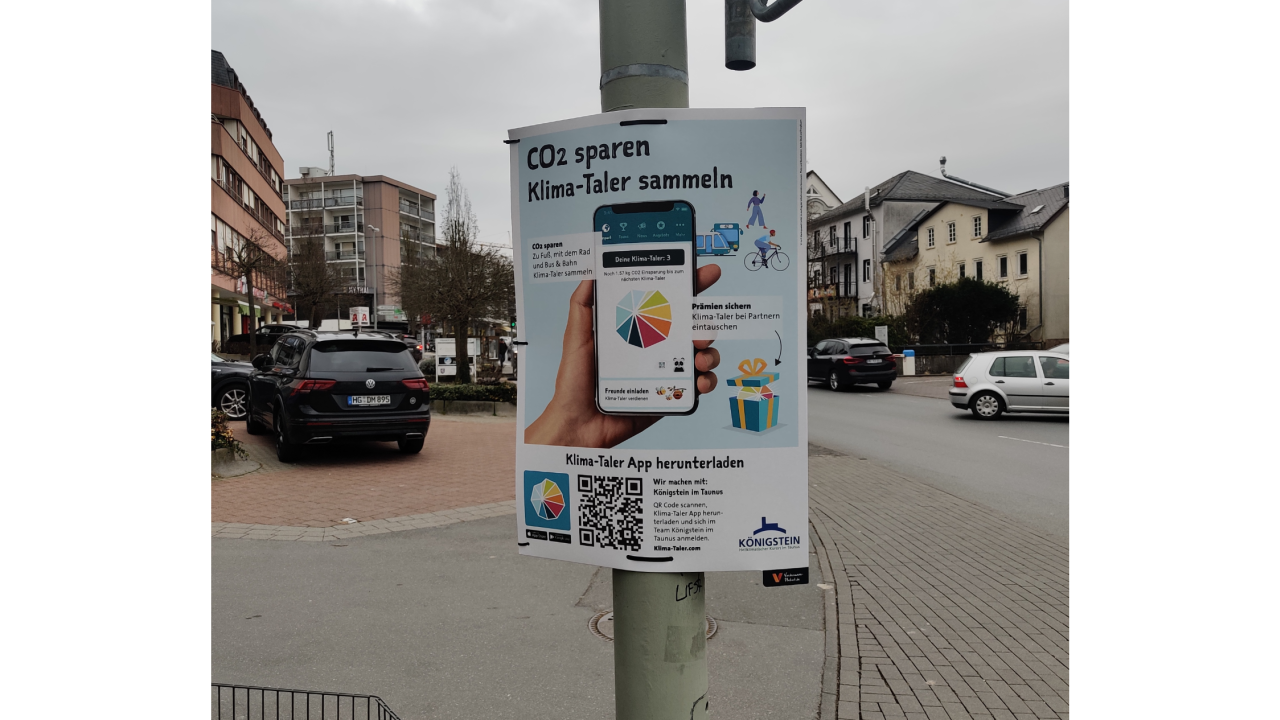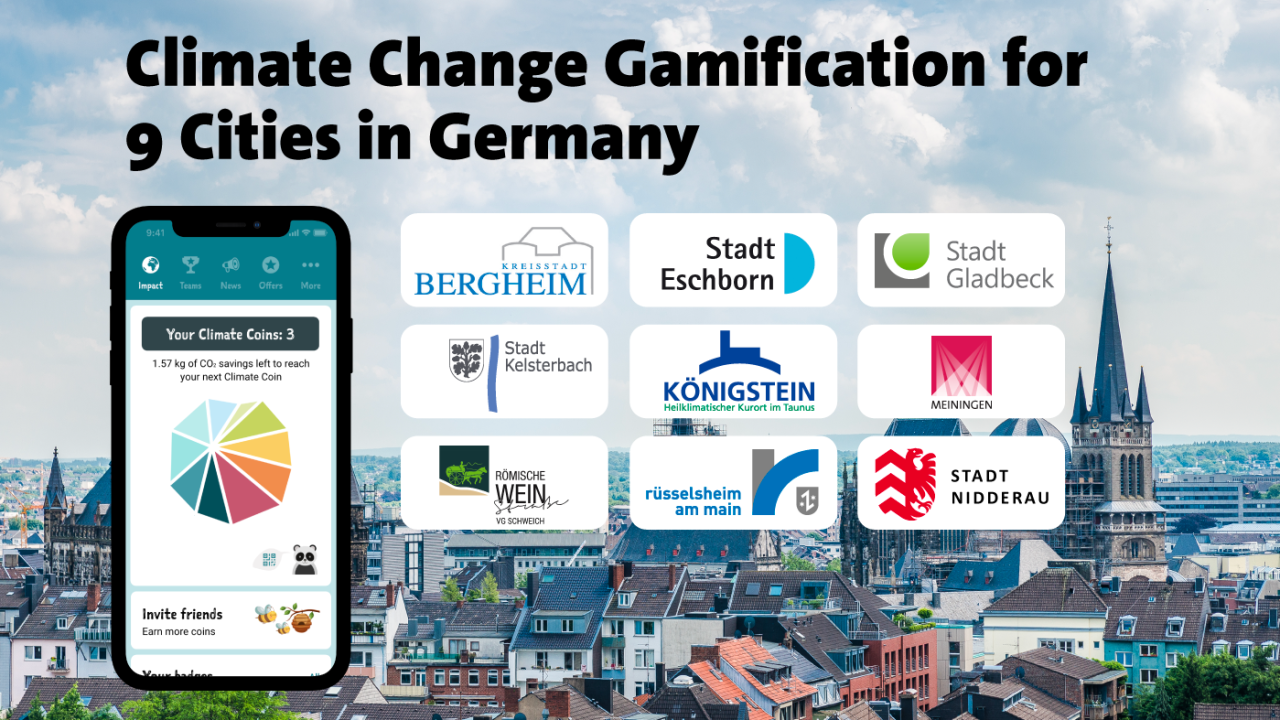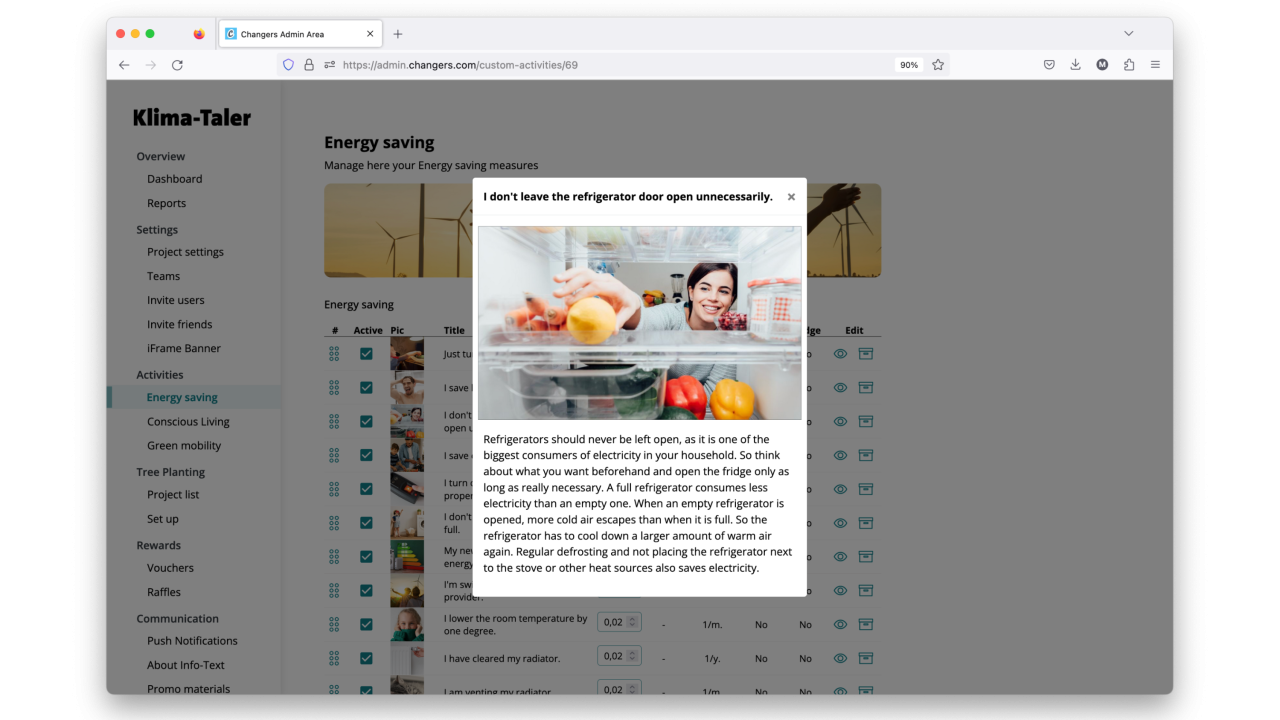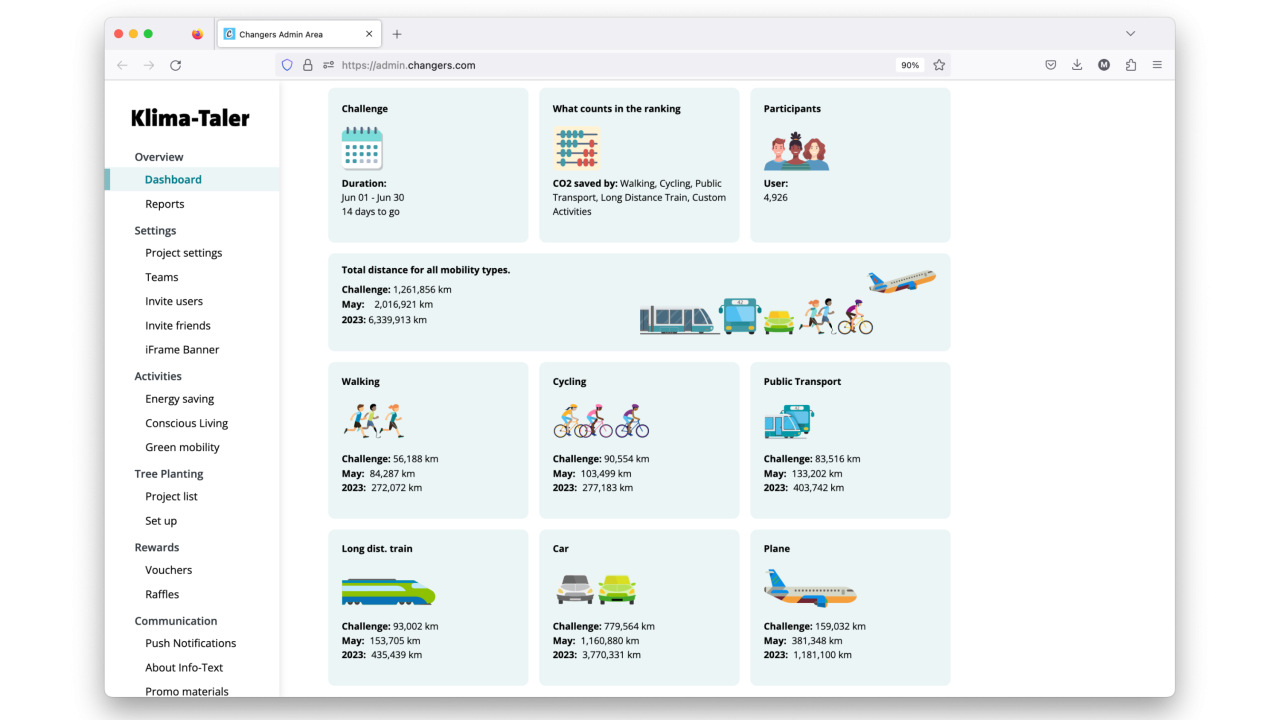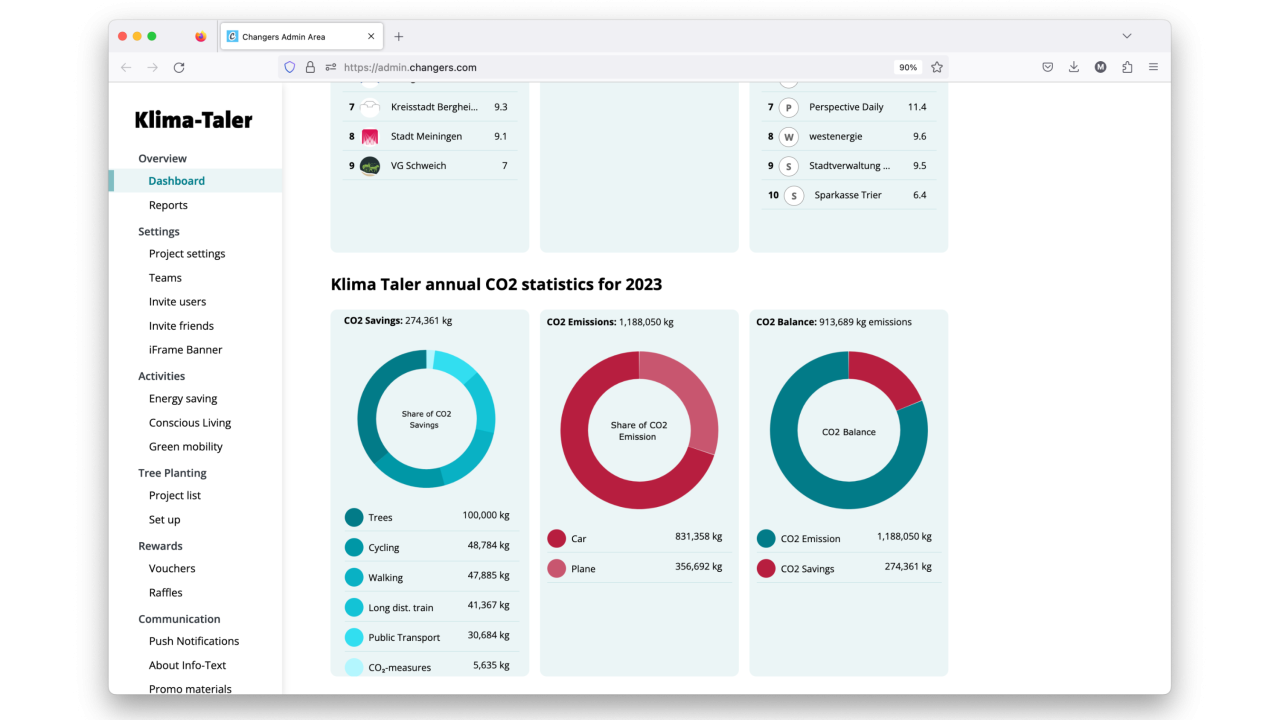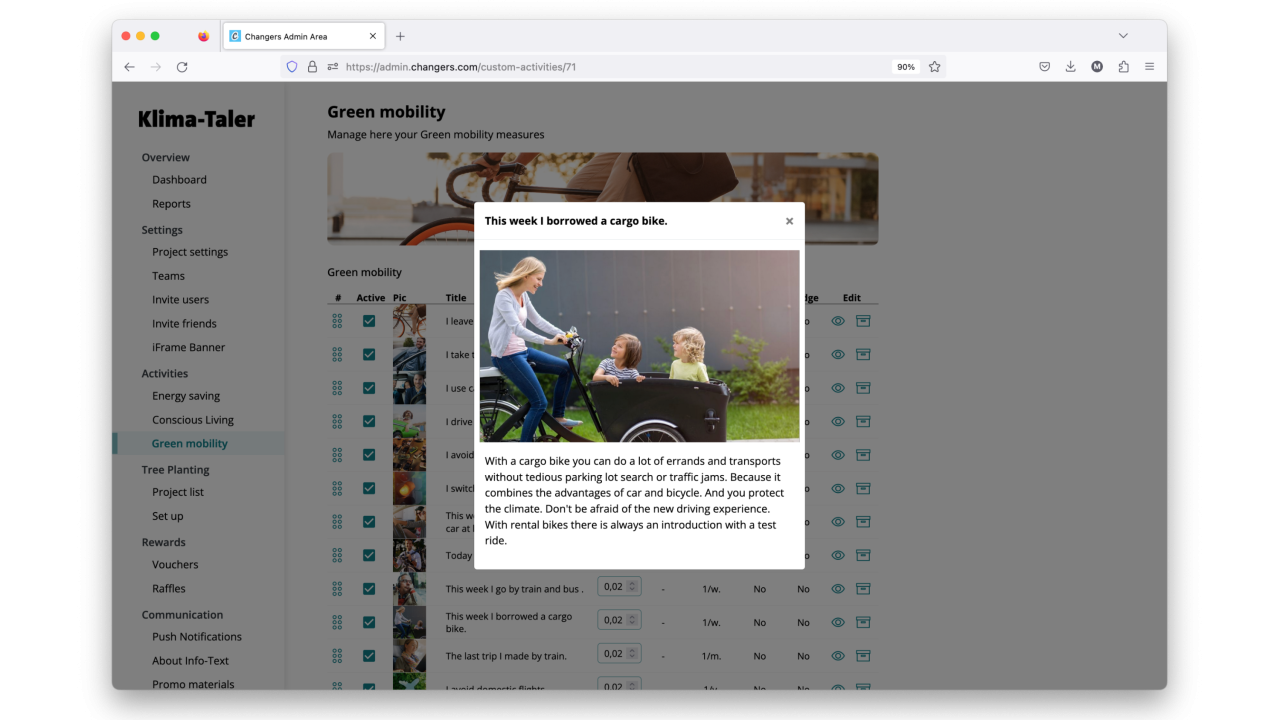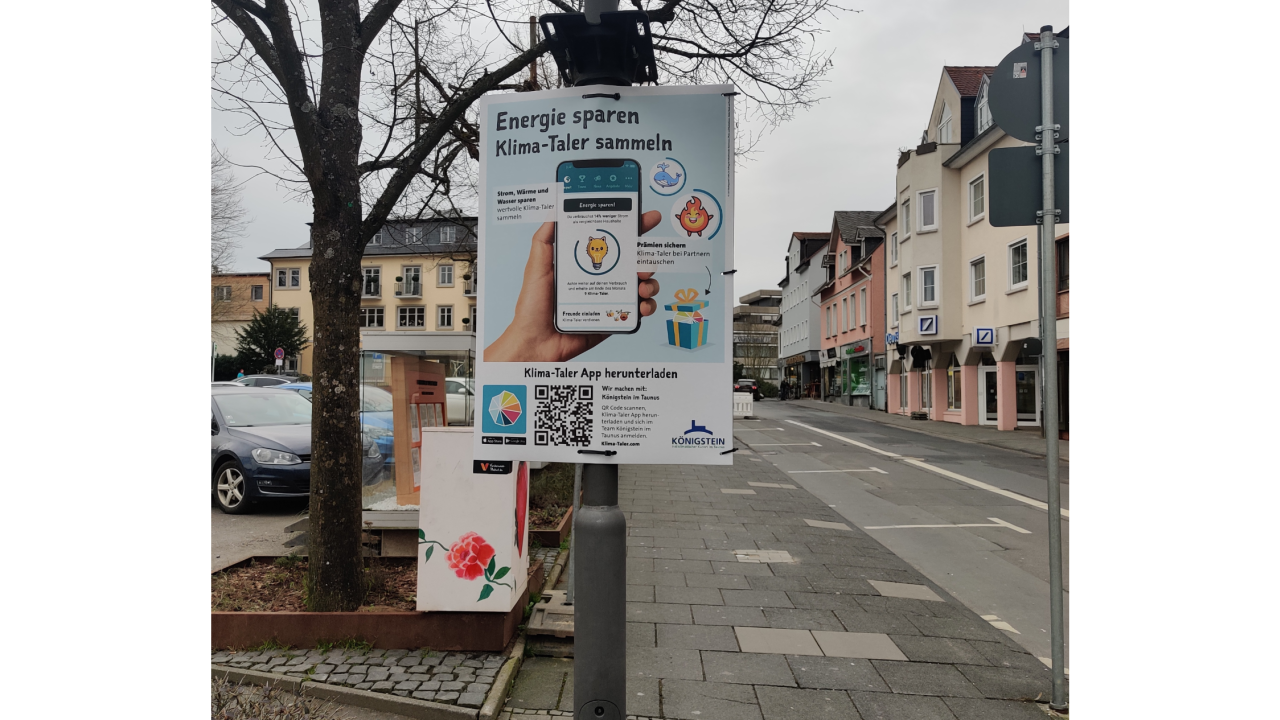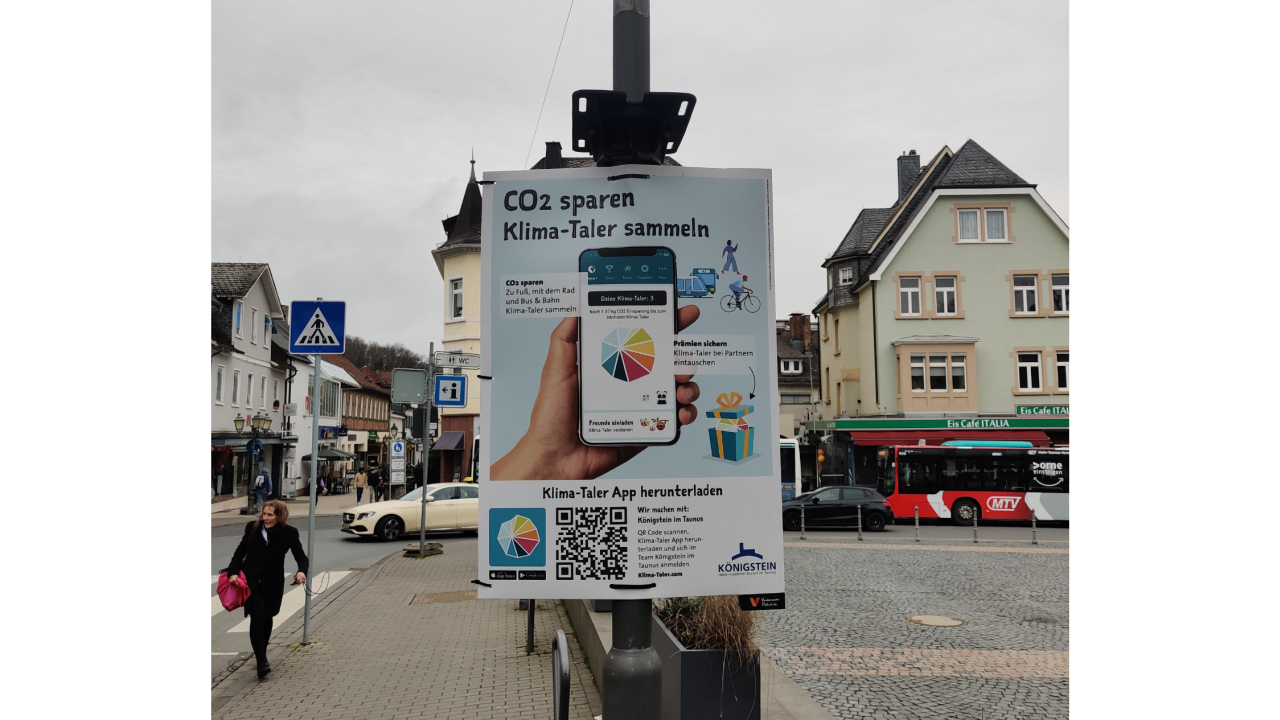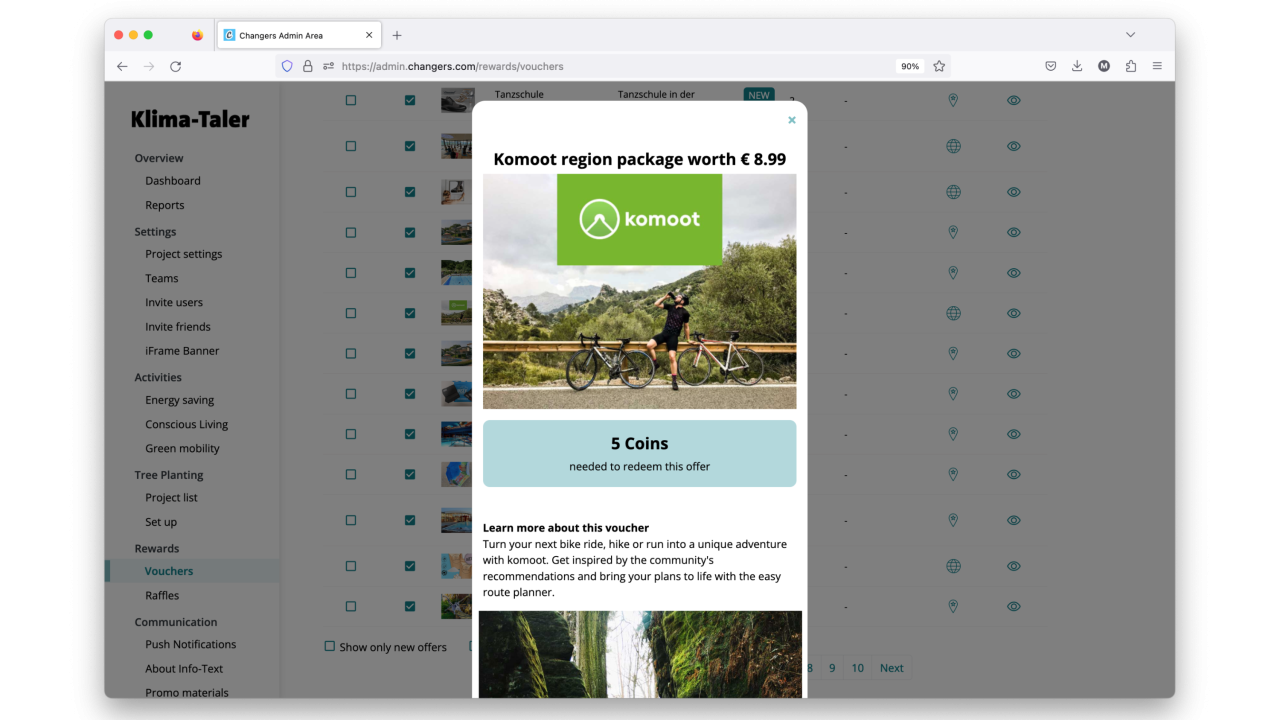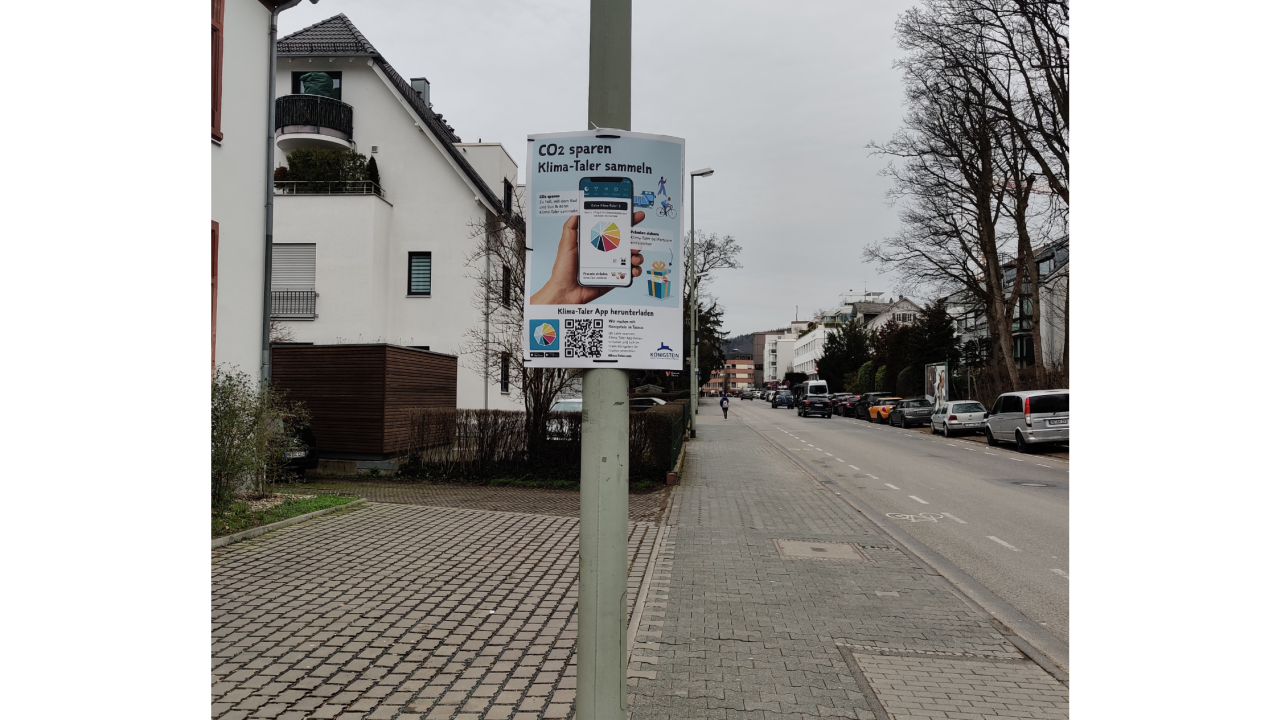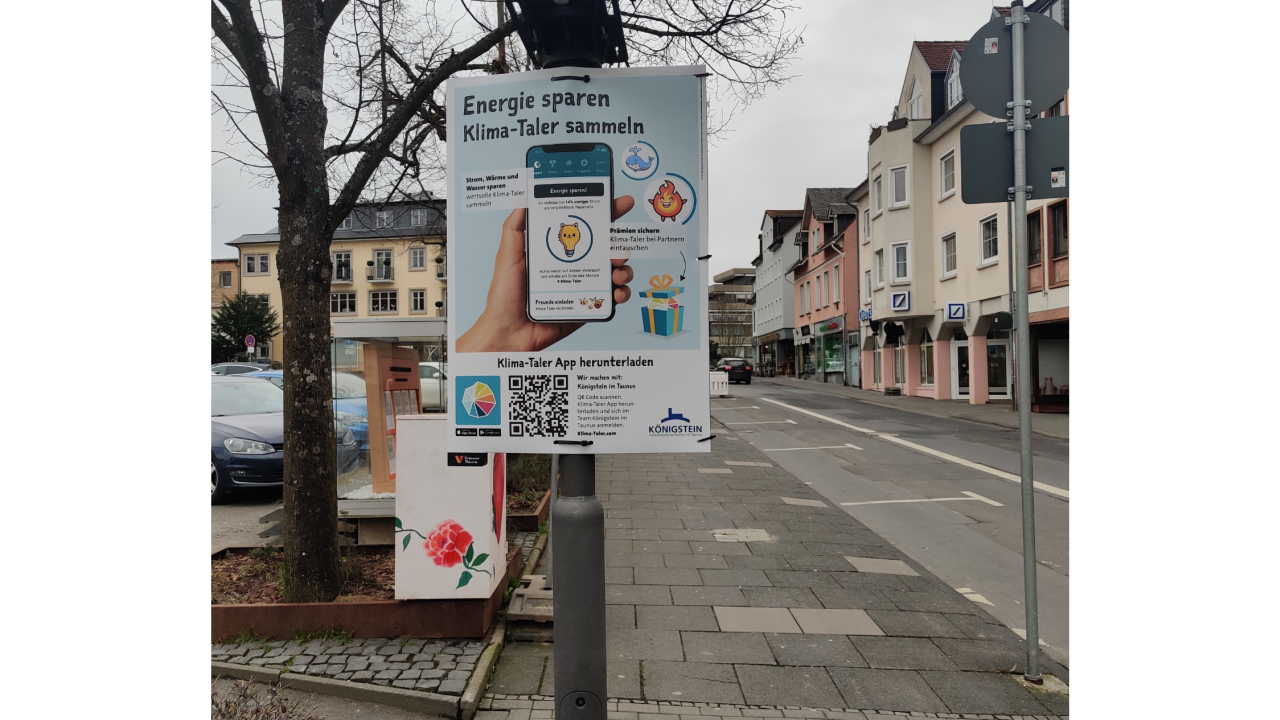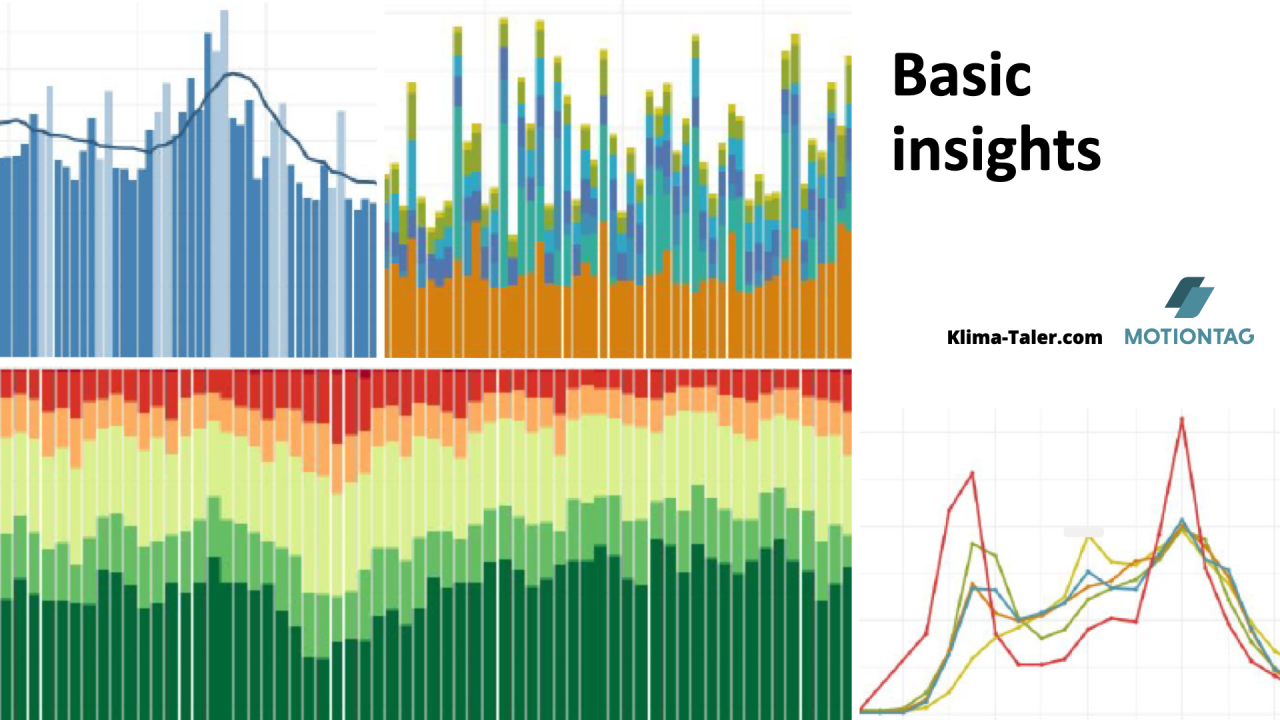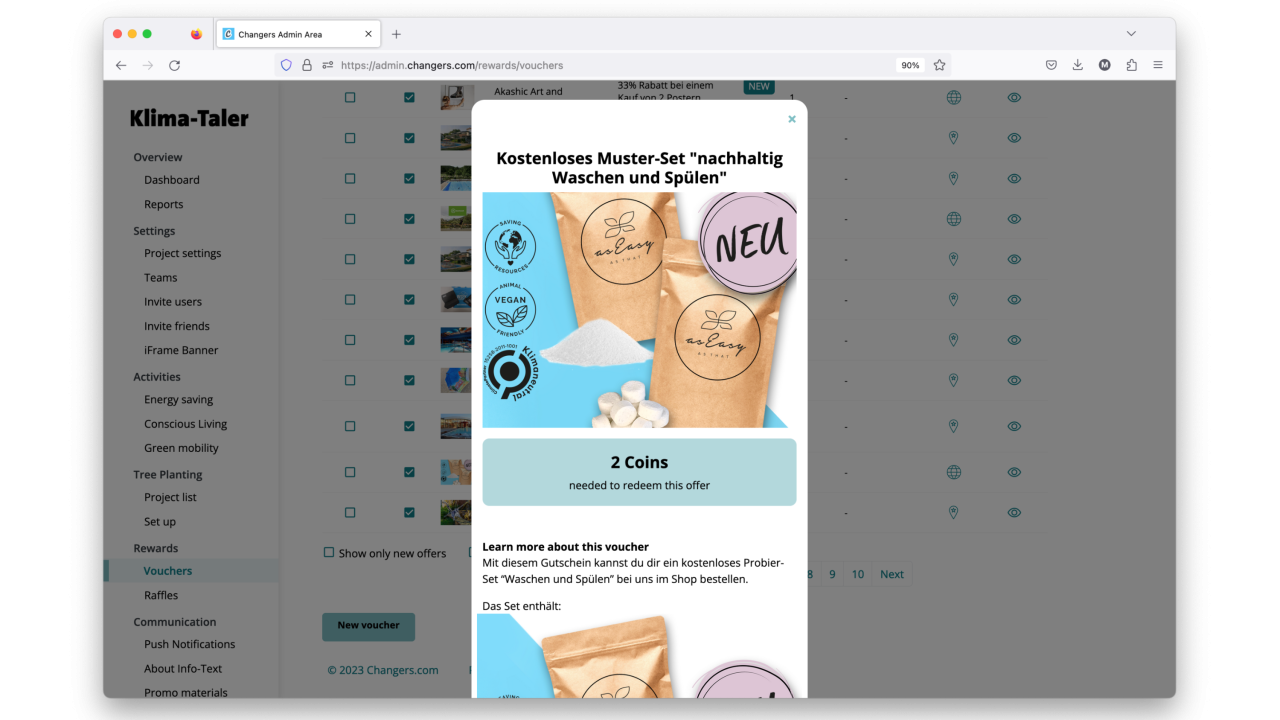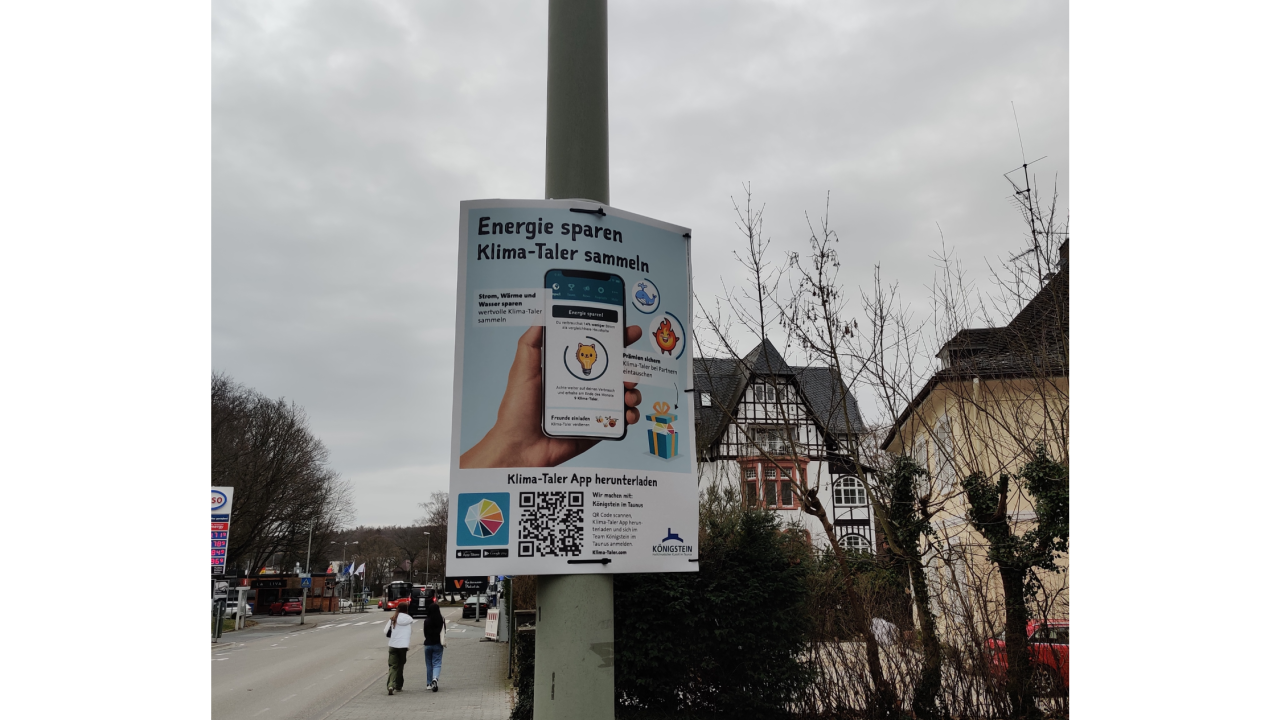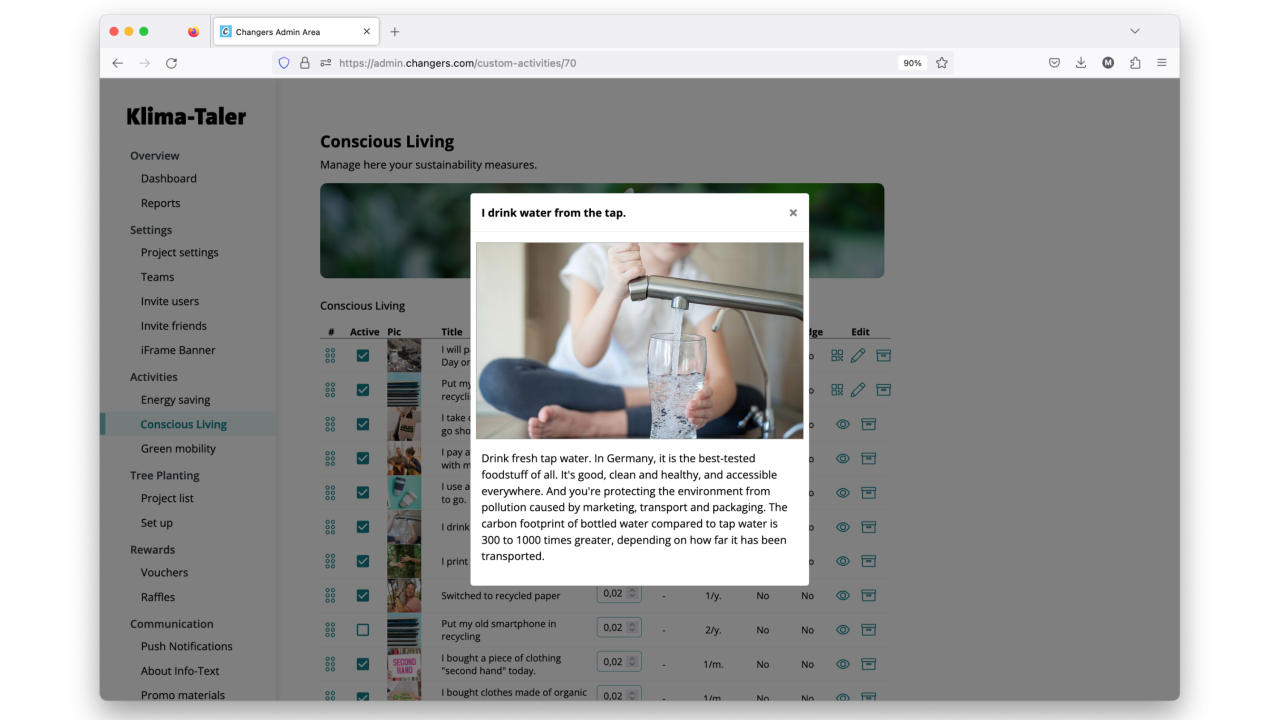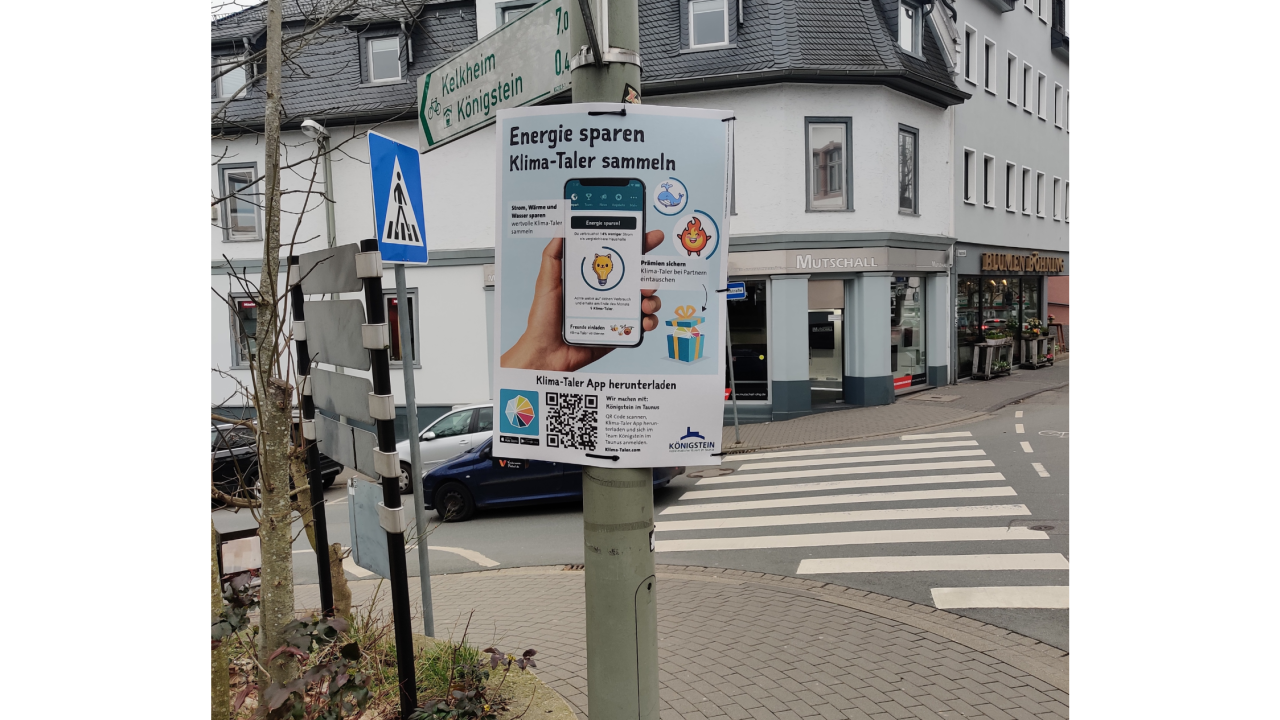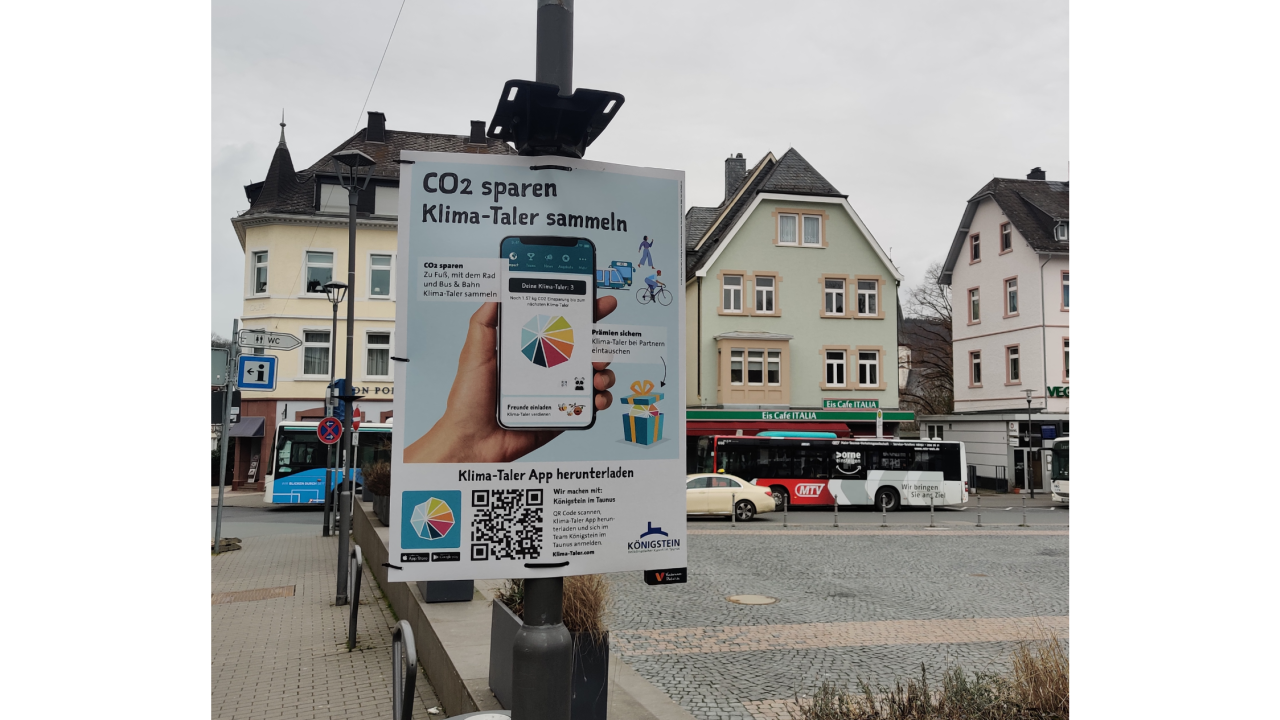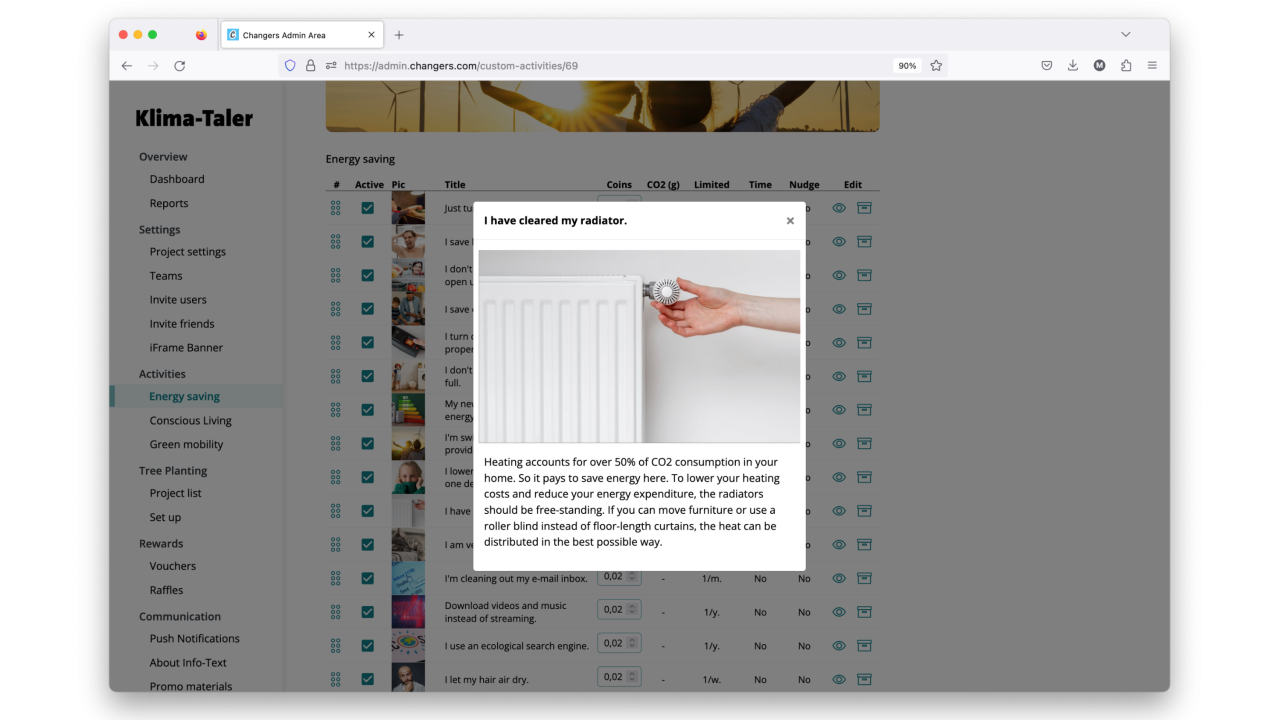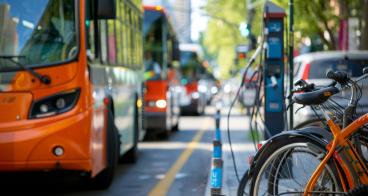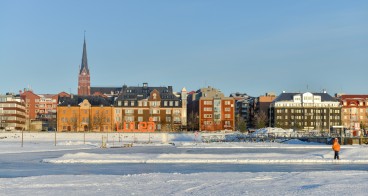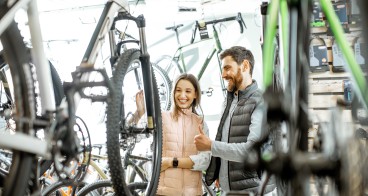Climate Change Gamification for 9 Cities in Germany
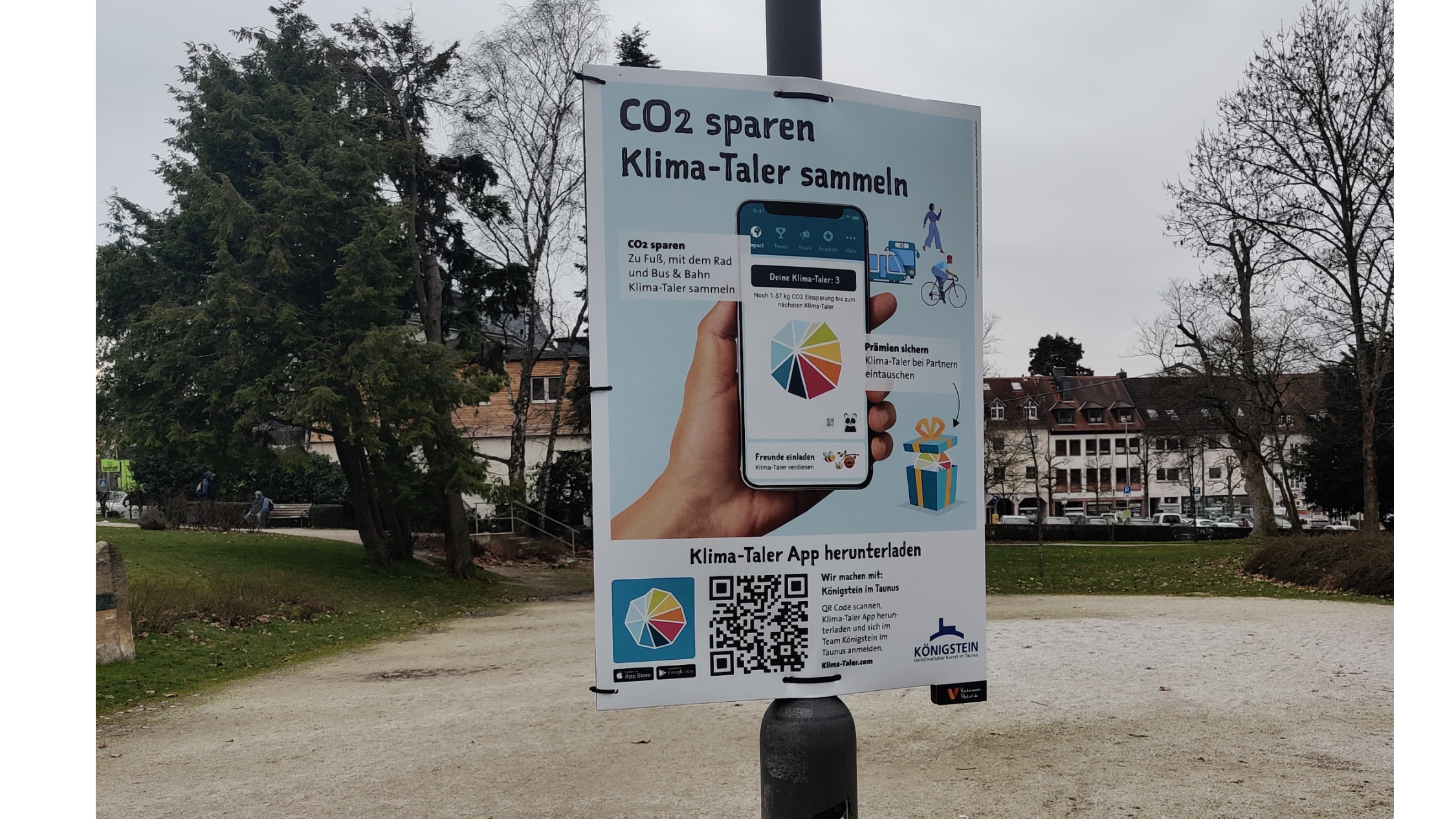
The Challenge
The challenges we face in municipalities and cities
- Low participation of citizens in the transportation transition.
- Lack of knowledge about the incentivization of behavioral changes.
- Lack of current data basis for scientifically based infrastructure decisions.
- No comparable mobility and climate protection KPIs for municipalities and cities to be able to compare the progress, impact, and also the cost of measures against benefits.
- Very limited human and financial resources in the municipalities for the implementation of the traffic and energy transition. Installations are dependent on public funding. When the funding programs expire, the municipalities often have to discontinue the projects. Once achieved goals evaporate again.
The Solution
Climate-Taler Gamification for Increased Citizen Participation
The Climate-Taler responds to a problem of behavioral economics: Knowledge about climate change does not change habits. If this knowledge brings a direct benefit, it motivates sustainable action for climate protection. Citizens earn Climate-Taler in a playful way and can exchange them for valuable regional services and products. This creates a connection between municipal climate protection and local economic promotion. We also circumvent bans and renunciations and promote the local economy.
The willingness to participate enables meaningful data evaluations, which are needed for costly infrastructure decisions.
Basic Insights
- Modal split by the number of tracks per calendar week.
- Modal split by distances travelled per calendar week.
- Diurnal curve on workdays per mode
- Average distances travelled per person per day
- Average trip distance per mode and day
- Share of users per CO2 emissions category
Customized insights
- Passenger count per station
- Changepoint OD matrices
- Customized OD matrices
- Passenger count per public transport line
- Catchment areas
Cost Reduction for Permanent Participation
Reduction of costs by up to 90% compared to a White Label version for large cities. Participation for an annual flat rate from 4,800 € is possible. Municipalities receive a professional marketing package from outdoor advertising, information flyers to press templates and digital data dashboards.
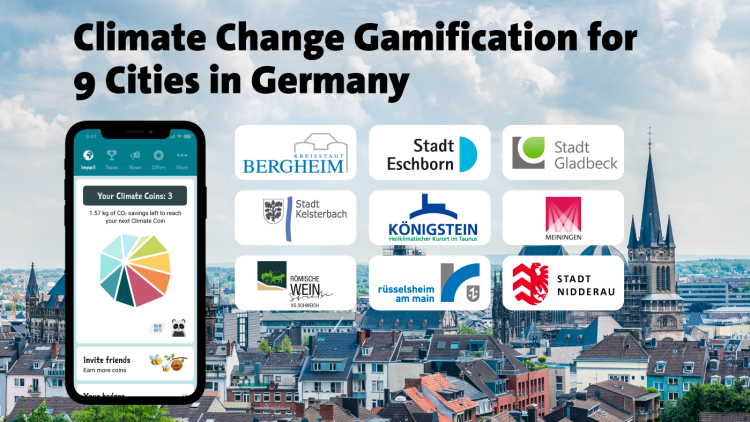
Making an impact
Results after 3 months of Runtime:
Development of 4 KPIs. These are marked as KPI 1 to KPI 4 below.
- 4,981 Participants
- 6,341,466 km total recorded
- 1,387,421 km green mobility
- 168,885 kg CO2 saved by green mobility
- 271,759 km walking
- 280,533 km cycling
- 835,129 km public transit
- 3,770,837 km car drives
- 1,183,208 km flights
KPI 1: Modal split
- 5.27 % walking
- 5.44 % cycling
- 7.81 % public transit (city)
- 8.38 % public transit (regional)
- 73.1 % car
KPI 2: CO2 emission generated from 1 kilometer
Total average: 0.128 kg CO2
- Kelsterbach 0.111 kg
- Königstein 0.119 kg
- Nidderau 0.132 kg
- Bergheim 0.138 kg
- Schweich 0.159 kg
- Gladbeck 0.106 kg
- Meiningen 0.143 kg
- Rüsselsheim 0.061 kg
- Eschborn 0.091 kg
KPI 3: Percentage of green mobility on all kilometers taken in the cities:
26.9 %
KPI 4: Green mobility per kilometer of car travel:
Total: 0.368 km green mobility
- Kelsterbach: 0.476 km
- Königstein: 0.422 km
- Nidderau: 0.353 km
- Bergheim: 0.322 km
- Schweich: 0.212 km
- Gladbeck: 0.459 km
- Meiningen: 0.291 km
- Rüsselsheim: 0.841 km
- Eschborn: 0.606 km
143 Traders and Municipal Institutions have Registered as Climate Partners on the Retailer Portal
- 113 Retailers
- 23 Municipal swimming pools
- 3 Museums
- 3 Theatres
- 1 Football Club
Further stats of the Retailer Portal
- 262 Offers were exchanged
- 996 Climate coins were exchanged for these.
- 3,816 Climate coins were used as insetting compensations in the app.
This offset their own CO2 emissions recorded through fossil mobility and energy consumption.
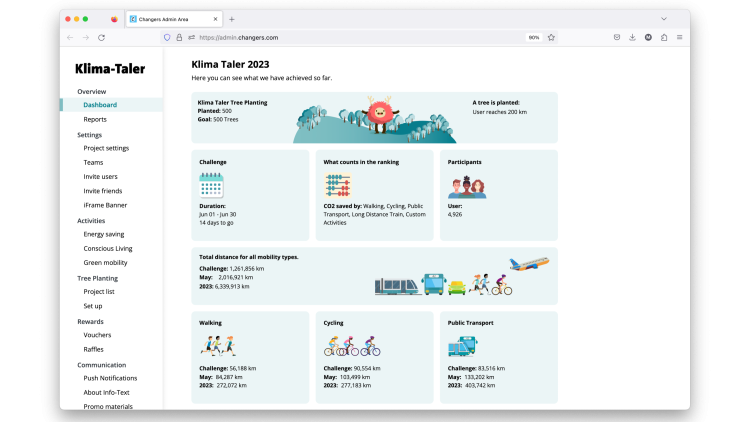
Lessons learnt
Anonymous Participation
All citizens can participate at any time without registration. They do not need to provide a name, an email address, or a phone number.
Simplicity and Automation
Participation must be simple. The citizen needs to know what to do to receive Climate-Tokens. Unnecessary inputs should be avoided. The AI automation of route recording and energy consumption was a crucial success factor in the implementation.
Diverse Opportunities for Participation
The citizen needs to feel that they can participate in climate protection in many areas of their life. Even if this diversity is not ultimately used, it is queried at the beginning. If opportunities are not available, the perceived lack is used as an excuse not to participate.
Ready-Made Marketing Materials
Visibility in public spaces is the best way to reach citizens cost-effectively and quickly. We developed two poster designs that are printed on hardboard and delivered to the cities. These can easily be attached to street lamps.
In addition, the cities receive informational brochures, ready-made text templates, and a comprehensive media kit for local press work. For the display of achieved values, we provide an iFrame data dashboard that is integrated into the website.
Monthly Jour Fix with all Cities
We need the exchange of experiences and knowledge between the cities. Therefore, we have established a monthly Jour Fix.



